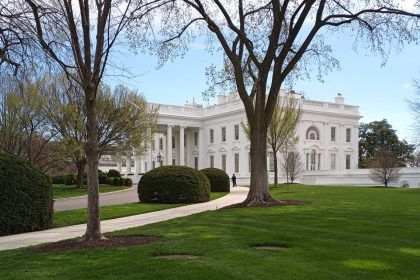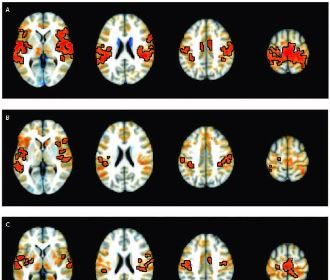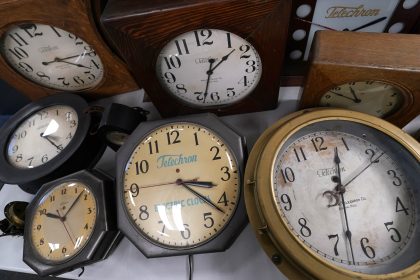Texas Approves Psychedelic-Assisted Therapy Study for Veterans with PTSD

AUSTIN, Texas– In Texas this week, a bipartisan bill to develop a study on the use of psychedelic therapy to treat post-traumatic stress disorder in veterans was overwhelmingly approved by the Senate.
“We are losing over 20 veterans a day to suicide in the United States. Although we are nearing the end of nearly two decades of combat in the Middle East, we are only just realizing the battle ahead to heal the invisible wounds of war. Our current treatments for PTSD and other stress-and-trauma-related mental health conditions are failing, and it is time we find new approaches,” said Democratic Rep. Alex Dominguez, who authored the bill.
According to Dominguez, this would be the first study into the safety and efficacy of psilocybin to treat PTSD. Currently, MDMA and ketamine are the only psychedelic-assisted therapies which have received breakthrough therapy designation for PTSD treatment from the Food and Drug Administration.
Marcus Capone, a retired U.S. Navy SEAL and co-founder of the nonprofit VETS, Inc., flew to Mexico on Veterans Day in 2017 to receive the first of multiple psychedelic-assisted therapies, which have so far included ibogaine, ketamine, and psilocybin, to treat his PTSD and traumatic brain injury.
Prior to receiving psychedelic-assisted therapies, his wife Amber Capone said her husband was on 10 medications a day, and experienced extreme social anxiety, often exhibiting odd behaviors like locking doors multiple of times, or flying off the handle into rage, and mood personality changes, which he attempted to numb with alcohol.
“When you transition out of the military all of the sudden the wheels come off and you feel like no one understands, the support offered is often not effective, and those years were really tough,” said Capone.
After hearing a success story of another veteran who used psychedelic-assisted therapies outside the U.S., Capone encouraged her husband to try ibogaine therapy in Mexico.
The couple, who both identify as conservatives and Christian, were reluctant to pursue the treatment, as it is an illegal substance, but were desperate and willing to try anything.
“It’s a lot for them to step out on a national stage and share something so misunderstood and stigmatized. We never expect a Navy SEAL to say they are struggling, or have daily panic attacks,” said Capone.
After his first treatment, Capone said her husband was more at ease and relieved, seemed cognitively clearer and felt his depression was subsiding.
To help provide the benefits of these psychedelic-assisted treatments to other veterans, Capone and her husband started VETS, which funds veterans to receive one of six psychedelic-assisted therapies, ibogaine, 5-MeO-DMT, Ketamine, psilocybin, MDMA, and Ayahuasca, in places where it is legal outside of the U.S., such as Mexico, the Caribbean, Costa Rica, and Peru.
“We have seen this success in 350 veterans we have provided funding for, to leave the U.S. and pursue therapy through a treatment and travel grant, and they do their due diligence in finding a treatment center of their choice,” said Capone.
Although the pandemic slowed funding from donors, and travel was restricted to other countries during the height of lockdown orders, Capone said the organization still provided 110 vets with funding for treatment in 2020, and another 150 vets with treatment in 2021.
The team conducted a retrospective study published in 2020, which surveyed 65 veterans who received funding for these therapies, in which 96% reported it was more effective than anything they had tried to-date at combating PTSD and traumatic brain injuries, and other mental health conditions from combat.
“Most veterans receiving funding for us have tried talk therapy, 12-step programs, magnetic brain stimulation, hormone replacement, and multiple prescriptions, and it seems they are helpful, but psychedelics hit the reset button and allowed for these other treatments to be more effective,” said Capone.
VETS will also soon partner with Stanford University researchers in a study to get a better idea of what ibogaine could be doing in the brains of veterans with PTSD and traumatic brain injury.
And the research will continue to build from there, as HB 1802 will soon be signed into law by Gov. Greg Abbott, creating a two-year pilot study regarding the potential of psychedelic-assisted therapy to treat stress, and trauma-related mental health conditions.
The study is currently being developed by a primary scientific advisor who supported the passage of HB 1802, Dr. Lynnette Averill, a clinical neuroscientist and psychologist who is currently a research fellow in the clinical neurosciences division of the National Center for PTSD VA Connecticut Healthcare System.
“Next steps will be finding out exactly what sort of budget has been earmarked for this, and then working out details of the clinical trial, and applying for the required ethical and regulatory oversights, like the Institutional Review Board, Food and Drug Administration, and Drug Enforcement Administration,” said Averill.
Dominguez believes the passage of HB 1802 might guide other states to fund similar research initiatives for psychedelic-assisted therapy to address mental health issues.
“I hope that this narrowly tailored study will not only advance scientific research into PTSD treatment for veterans but will help spark the national conversation on better treatments for PTSD and all trauma-related mental health conditions for all Americans,” said Dominguez.
“We’ve seen efforts building in other states because of what is happening in Texas. If the VA could coordinate the higher density veteran areas, and do a collaborative study on these therapies, it would provide the data needed for change at the federal level,” said Capone.























